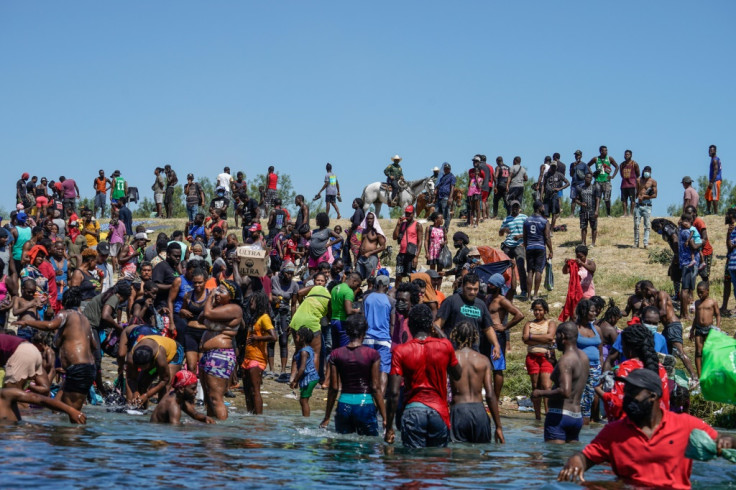
The Biden administration is considering implementing a series of unilateral measures aimed at stemming the flow of migration to the country, as negotiations in Congress continue in a stalemate.
According to a report by NBC News, among the measures there would be some that would make it harder to qualify for asylum and others that would make it easier to quickly deport people who don't meet the criteria for this.
Quoting three people with knowledge of the deliberations, the report claims that asylum officers would be instructed to raise the standards of "credible fear interviews," the first step in the screening process for those who cross the border illegally. Moreover, law enforcement officials would be told to prioritize recently arrived migrants for deportation.
Even though no decision has been made, the actions were described as a "low hanging fruit," considering these kinds of actions could be taken quickly and achieve results in the short-term.
The measures could be implemented through executive action, something the Biden administration has been considering ever since negotiations in Congress hit a wall. Earlier this year, Republicans refused to endorse a bipartisan deal that would have allocated $15 billion to border security, claiming it wasn't tough enough.
Democrats have gone on offense ever since, accusing their counterparts of tanking the deal for political purposes, as likely presidential candidate Donald Trump had said he didn't want to see the agreement done.
The shift in rhetoric comes as almost 80% of people in the U.S. believe the soaring of crossings in the southern border of the country is a grave problem and that the Biden administration is not doing a good job addressing it, according to a new poll by the Pew Research Center.
However, the report notes that without any additional funding from Congress, any unilateral action would be limited because the Department of Homeland Security is low on fundings. Another report showed that the department will not only be unable to deal with an incoming influx of migrants, but it will also be unable to maintain the status quo.
Fewer new hires, less arrests, detentions and deportations of immigrants, and decreased investment in technology to detect migrants and fentanyl smuggling are just some of the expected outcomes in the absence of this bill.
Immigration and Customs Enforcement (ICE), one of the major agencies of DHS, would have received $7.6 billion to dramatically increase detention space for migrants. But without it, it will have to carry out fewer deportation than it has in the past year and increase detention space.
"A reduction in ICE operations would significantly harm border security, national security and public safety," A DHS spokesperson said.
In fact, ICE could release some 15,000 migrants from facilities near the border and not take in new ones amid massive cash shortfalls. Should the situation continue without changes, ICE could run out of funds for detention by July. There are currently 38,000 people in its custody.
© 2025 Latin Times. All rights reserved. Do not reproduce without permission.





